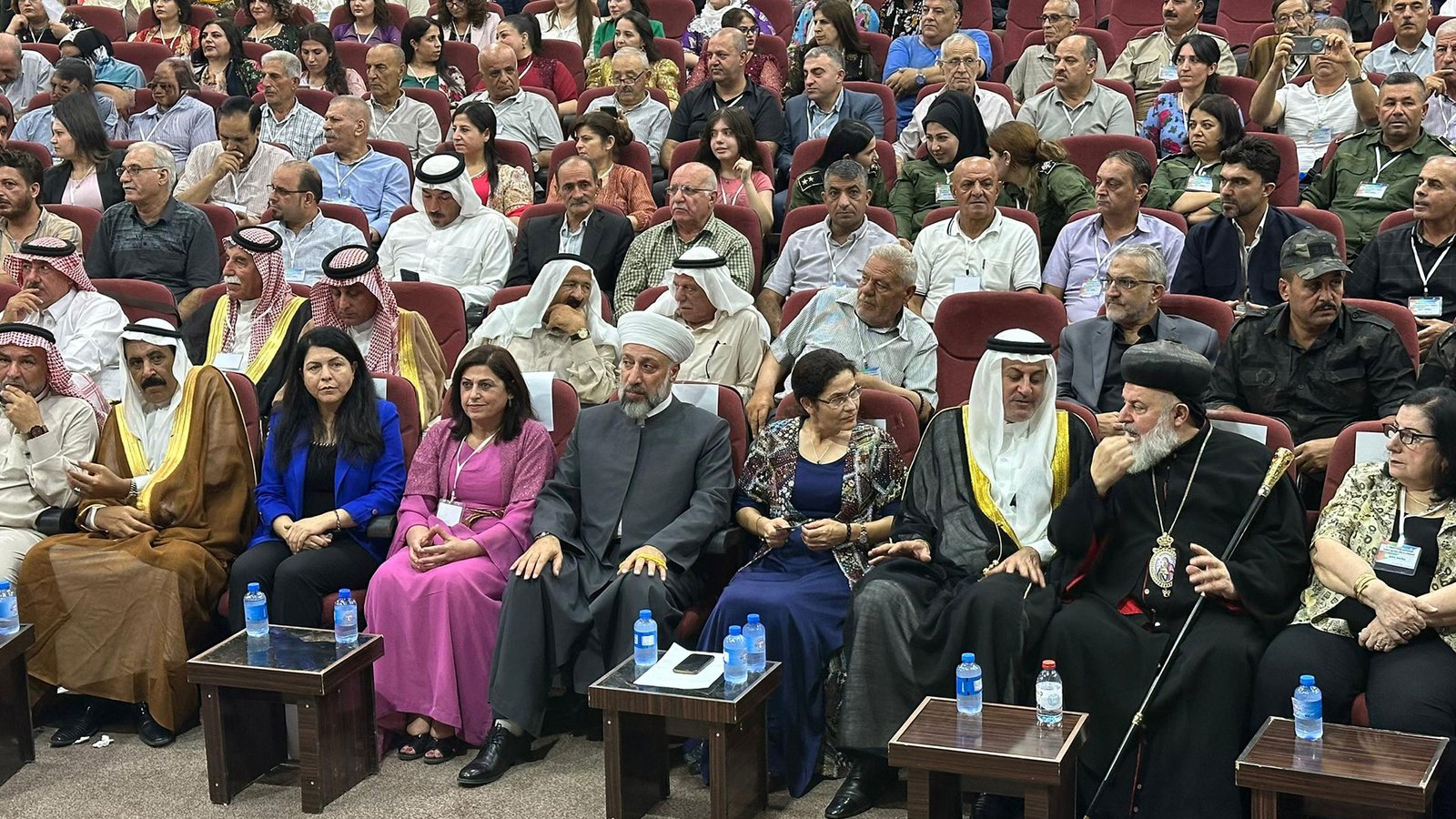Northeast Syria Conference Courts Druze and Alawite Leaders to Build ‘Decentralisation’ Coalition Ahead of Paris Talks

An SDF-organised conference in Hasakah city aimed at bringing together cross-ethnic and cross-sectarian representatives marked a significant step, particularly as it featured video addresses from the most prominent Druze and Alawite leaders in Syria. However, the event fell short of attracting major Arab tribal representatives.
Context: The gathering built on the Kurdish-only conference held in April, which endorsed decentralisation for Kurdish areas. This latest conference sought to broaden that framework to include all communities in northeast Syria, extending invitations to prominent religious figures from both the Druze and Alawite communities.
Analysis: The conference forms part of the SDF’s post–March 10 agreement strategy to secure its position within the new Syrian political order through a decentralised governance model. Its timing was significant, coming in the aftermath of massacres along the coast—where hundreds of Alawites are feared to have been killed—and the Syrian government’s offensive on the Druze stronghold of Sweida, which left hundreds dead before Damascus was forced to withdraw under intense Israeli airstrikes.
During the conference, Sheikh Hikmat al-Hijri—now the most influential of the three Druze spiritual leaders—voiced support for decentralisation, echoing the SDF’s position. This was later reinforced by Ghazal Ghazal the head of the Alawite religious community, who expressed similar demands. These two figures are undeniably the most authoritative voices within their respective communities.
By contrast, Arab tribal representation was noticeably weaker. Only one or two attendees, such as Akram Mahshush, a prominent Sheikh of the al-Jibur tribe, carried influence within their constituencies. The absence of most major Arab tribal leaders underscored a lack of broad Arab participation, unlike the strong representation from Druze and Alawite leaders. The SDF had attempted to organise a separate conference for Arab tribes to endorse decentralisation, but those efforts appear to have failed to attract sufficient tribal figures.
Another notable development was the absence of the rival Kurdish National Council (KNC), backed by the KDP in the Kurdistan Region. The KNC had been a key player in the April pan-Kurdish conference but reportedly opposed this latest gathering. Abdulhakim Bashar, one of its senior leaders, openly criticised the event, accusing the SDF of using the April conference to manipulate the KNC and warning that the Hasakah meeting could deepen divisions between Kurds and Sunni Arabs, escalating tensions.
Despite such criticism, the conference appears to have met its primary objective: building on recent developments to forge a coalition among Syria’s minority groups in support of decentralisation. While this approach risks alienating much of the Arab tribal leadership and provoking backlash from rival Kurdish factions, it strategically bolsters the SDF’s position ahead of its upcoming negotiations with Damascus, expected to be held in Paris with US, French, and UK mediation.









